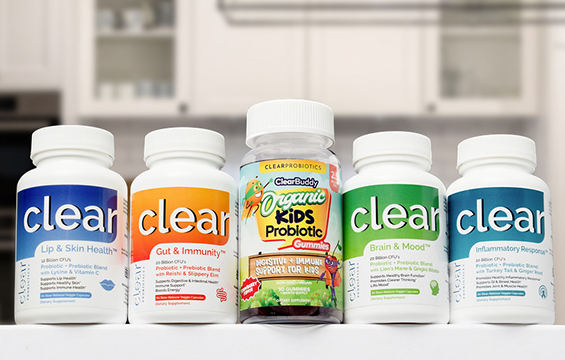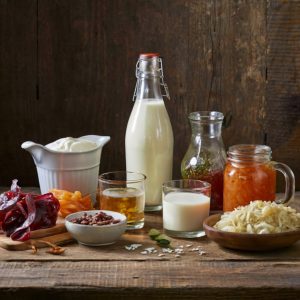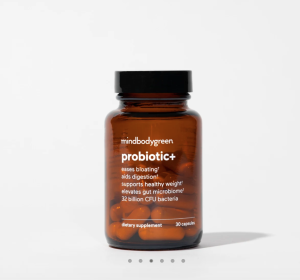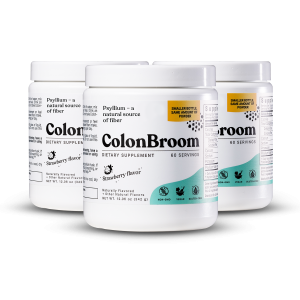Table of Contents
ToggleIntroduction
Many wonder if probiotics make you poop, a question that underscores the vital role these ‘good’ bacteria and yeasts play in digestive health.
In this comprehensive guide, we delve into the nature of probiotics, their various forms – predominantly Lactobacillus and Bifidobacterium – and their mechanism of action in regulating gut health.
While they might not directly trigger bowel movements, probiotics are instrumental in promoting regularity and maintaining the overall balance of the digestive system, affirming their importance in our daily nutrition for optimal gut wellness.
Key Takeaways:
- Probiotics are supplements that contain “good” bacteria and yeasts, promoting a healthy body and fighting off infections.
- Probiotics support gut health by regulating the digestive system and restoring balance in the gut microbiome.
- There are two main types of probiotics: Lactobacillus and Bifidobacterium, each with specific benefits.
- Probiotics work in three stages: surviving stomach acidity, reaching the intestinal tract, and inhibiting the growth of harmful pathogens.
- While probiotics can promote regular bowel movements, they should not be mistaken for stimulants or laxatives.

Understanding How Probiotics Make You Poop
Probiotics play a pivotal role in maintaining gut health and are often linked to the question of whether probiotics make you poop.
These beneficial bacteria reside in the gastrointestinal tract, which houses trillions of microorganisms, both helpful and harmful.
Imbalances in this bacterial community can lead to a variety of digestive problems and impact overall health.
Probiotics take on the critical task of restoring and upholding the balance within the gut’s microbiome.
They effectively regulate food intake, synthesize essential vitamins, and assist in breaking down medications, collectively fostering a healthy digestive system.
One of the standout benefits of probiotics is their capacity to fight off harmful pathogens that enter the body via the gut.
Probiotics produce acids that suppress the growth of detrimental bacteria while promoting the growth of beneficial ones, thus reestablishing balance and enhancing gut health.
The gut microbiome, comprising various microorganisms, is a key player in digestive health.
An imbalance in this ecosystem can result in digestive issues like bloating, gas, diarrhea, and constipation.
Types of Probiotics
Two main types of probiotics, Lactobacillus and Bifidobacterium, commonly improve gut health, each offering unique benefits for a healthy digestive system.
Lactobacillus: Known for aiding in lactose reactions, addressing common intestinal issues, and breaking down sugars in dairy products, Lactobacillus strains appear in various fermented foods, especially yogurt.
Incorporating Lactobacillus probiotics into your diet supports digestive health and enhances your body’s ability to process dairy.
Bifidobacterium: Beneficial for those suffering from Irritable Bowel Syndrome (IBS) symptoms, gas, and bloating, Bifidobacterium probiotics are found primarily in dairy products.
Introducing Bifidobacterium strains into your gut microbiome can alleviate these symptoms, promoting a healthier digestive system and overall well-being.
For probiotic supplements, choosing enteric-coated ones is advisable. These supplements feature a special coating that protects them through the stomach, ensuring they reach the gut microbiome effectively to provide maximum benefits.
How Do Probiotics Work?
Probiotics, often linked to the question of whether they make you poop, function in three key stages to enhance digestive health and ensure a balanced gut microbiome.
- Surviving stomach acidity: Probiotic bacteria must pass through the acidic environment of the stomach to reach the intestinal tract. This journey can be challenging as the stomach’s acid levels can destroy some bacteria. However, probiotics that survive this stage move on to the next phase.
- Reaching the intestinal tract: Once probiotics make it to the intestinal tract, they can thrive and live off the oxygen supply present in the small intestines. This environment provides the necessary conditions for the bacteria to grow and multiply.
- Pathogen inhibition: Probiotics play a vital role in inhibiting the growth of harmful bacteria in the gut. They achieve this by emitting acids that destroy pathogens, preventing them from causing infections or imbalances. By eliminating these harmful bacteria, probiotics create room for good bacteria to flourish and maintain a healthy balance in the gut microbiome.
Probiotics work synergistically with the body’s existing good bacteria to support digestion, nutrient absorption, and overall gut health.

Signs Your Probiotics Are Working
The signs indicating that probiotics are effectively working include:
- Reduced Frequency of Colds: Experiencing fewer colds or milder cold symptoms can signal that probiotics are enhancing your immune system. This improvement is a result of probiotics strengthening the body’s natural defense mechanisms.
- Improved Skin Health: Noticeable improvements in skin conditions, such as a decrease in rashes, acne breakouts, or other skin irritations, suggest that probiotics are positively impacting your skin microbiome, helping to restore its natural balance.
- Enhanced Digestive Health: Significant signs of effective probiotics include improved digestion, more regular bowel movements, and reduced digestive discomfort. These changes indicate that probiotics are successfully balancing your gut microbiome, which is essential for optimal digestive function and overall well-being.
Impact of Probiotics on Bowel Movements
Probiotics significantly impact bowel movements, often helping to regulate them. They promote a balanced gut microbiome, essential for regular and healthy bowel movements.
Unlike stimulants like coffee or laxatives, probiotics support and regulate the natural rhythm of bowel movements through a balanced gut microbiome.
They enhance digestive health by promoting beneficial bacteria growth and inhibiting harmful bacteria.
This process not only restores overall digestive system health but also aids in regular bowel movement regulation.
Probiotics contain live microorganisms that improve the gut microbiome’s composition, crucial for digestion and gut health.
When the gut microbiome is balanced, it can lead to more regular bowel movements, helping alleviate constipation and promoting regularity.
However, individual responses to probiotics can vary, and improvements may take time to manifest.

How to Get Sufficient Probiotics
While probiotic supplements are available, we recommend obtaining probiotics from natural food sources to ensure quality and effectiveness.
The FDA does not regulate probiotic supplements, thus leading to variations in product standards.
To get sufficient probiotics, it is best to incorporate fermented and cultured foods into your daily diet.
These foods not only provide a good source of probiotics but also offer additional health benefits.
Here are some common sources of probiotics:
- Yogurt: Enjoy a serving of yogurt, either plain or flavored, as it contains live cultures of beneficial bacteria that can support your gut health.
- Miso Paste: Add miso paste, a traditional Japanese seasoning made from fermented soybeans to soups, dressings, or marinades.
- Tempeh: Incorporate tempeh, a fermented soybean product, into stir-fries, salads, or sandwiches for a delicious and probiotic-rich option.
- Fermented Milk: Drink fermented milk such as kefir, a tangy beverage packed with beneficial bacteria. It can be enjoyed plain or added to smoothies.
- Buttermilk: Include buttermilk in your diet, which is fermented and helps promote a healthy gut.
- Soy Beverages: Choose fermented soy beverages like soy yogurt or soy milk fortified with probiotics.
By incorporating these foods into your regular meals, you can increase your probiotic intake and support a healthy gut.

Side Effects and Risks of Probiotics
Most people can safely use probiotics, but they should be aware of potential side effects and risks.
These effects are generally temporary and mild, often involving digestive symptoms such as gas, bloating, and changes in bowel movements.
It’s crucial to recognize that individual reactions to probiotics can vary significantly; what benefits one person may not have the same effect on another.
People with specific sensitivities or allergies need to be particularly careful and should always check product labels to avoid any allergens that could cause adverse reactions.
Prebiotics and Their Role in Probiotics
Prebiotics crucially support the growth and effectiveness of probiotics in the gut by acting as their food source.
They provide essential nutrients that help probiotics thrive and perform beneficial functions. Prebiotics, rich in fermentable soluble fiber, nourish probiotics.
Consuming prebiotic-rich foods ensures they reach the colon through our intestines. In the colon, microorganisms break them down, releasing substances that feed and stimulate probiotic growth.
This process allows probiotics to flourish within our gut microbiome.
Integrating prebiotic foods into our daily diet simply and effectively supports probiotic growth and activity in the gut.
Examples of prebiotic-rich foods include legumes, rice, beans, green bananas, oats, barley, carrots, apples, onions, garlic, and Jerusalem artichokes.
Incorporating these foods into our meals fosters an optimal environment for probiotics, promoting a healthy gut and overall well-being.
Understanding the role of prebiotics in supporting probiotics involves considering how incorporating prebiotic-rich foods into our diet creates a conducive environment for probiotic growth and effectiveness.
This synergy between prebiotics and probiotics enhances our digestive system and overall well-being.

Do You Need Probiotic Supplements?
Many people question if probiotics make you poop and their role in maintaining a healthy gut.
In truth, for most individuals with a balanced diet, taking probiotic supplements is not essential.
Consuming a diverse range of fermented and cultured foods naturally provides the beneficial bacteria needed for gut health, which can regulate bowel movements.
| Foods | Probiotic Content |
|---|---|
| Yogurt | Contains Lactobacillus and Bifidobacterium strains |
| Kefir | Rich in various probiotic strains |
| Sauerkraut | Provides Lactobacillus strains |
| Kombucha | Contains multiple probiotic strains |
| Miso | Provides beneficial bacteria |
However, there are cases where probiotic supplements can be beneficial.
For instance, healthcare professionals may prescribe probiotics for individuals with specific health conditions or those who require additional support.
If you are considering taking probiotic supplements, it’s always best to consult with your doctor to determine if they are suitable for you.

Benefits of Probiotic Supplements
Probiotic supplements offer several health benefits.
They are particularly effective in restoring the gut microbiome, especially after a course of antibiotics, which can disrupt the balance of beneficial bacteria.
For individuals experiencing digestive issues, probiotics can aid in alleviating symptoms and promoting gut health.
Also, probiotics can provide an immune system boost, especially beneficial for those with weakened immune systems.
Probiotics contribute to overall well-being and improve digestive and immune health through maintaining a healthy balance of gut flora.

A Word from HealthyVibe
In conclusion, while probiotics don’t directly make you poop, their influential role in fostering a healthy gut environment cannot be overstated.
By balancing the gut microbiome, probiotics contribute significantly to regular and healthy bowel movements, reinforcing their status as key players in digestive wellness.
Whether sourced from natural foods or supplements, incorporating probiotics into your daily diet is a proactive step towards maintaining optimal digestive health, highlighting their importance beyond the simple question of whether probiotics make you poop.
FAQ
How Do Probiotics Influence Bowel Movements?
Probiotics help regulate bowel movements by maintaining a balanced gut microbiome. They don’t directly cause bowel movements but promote regularity and a healthier digestive system.
What Types of Probiotics Are Most Common?
The most common probiotics are Lactobacillus and Bifidobacterium. Lactobacillus aids in managing lactose intolerance and intestinal issues, while Bifidobacterium is effective for conditions like IBS. Both types exist in fermented foods and supplements.
In What Ways Do Probiotics Operate in Our Digestive System?
Probiotics operate by first surviving stomach acidity, then reaching the intestinal tract, and finally inhibiting harmful pathogens. This action helps to balance the gut microbiome, crucial for good digestive health.
Why Are Natural Food Sources Often Preferred Over Probiotic Supplements?
Natural food sources like yogurt and fermented vegetables are often preferred for probiotics because they offer additional nutritional benefits. However, supplements can be beneficial in specific cases for higher doses or particular strains.









